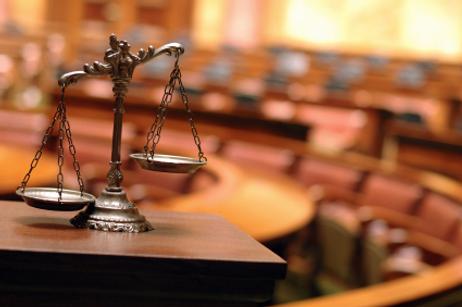The cheating scandal that has rocked the Atlanta Public School system for the better part of five years is now coming to a close with nearly three dozen indictments against educators in the city. Now, those found guilty of myriad charges, from racketeering to making false charges, have been given a deadline to report for jail. Among those indicted is Atlanta Public Schools Superintendent Beverly Hall, who received hundreds of thousands of dollars in bonuses directly tied to the “improvements” in standardized test scores.
A Long, Sordid Saga Comes to a Close
Suspicions of cheating throughout the Atlanta Public School system were first raised in 2008 by the Atlanta Journal-Constitution. According to the Daily Beast, the publication ran a story questioning the “statistically improbable” test score improvements at one of the city’s elementary schools. The Journal Constitution followed up with other levels of suspicious test results at ten more schools throughout the city.
What evolved after those reports was a long and complex investigation launched by former Georgia Governor Sonny Perdue. Perdue put numerous state resources behind the study, assigning two state prosecutors and dozens of investigators to the task. The study took several years to complete and eventually told a sordid tale of teachers forced into test cheating by intense pressure coming from top officials in the district.
This video reports on the Atlanta Schools cheating scandal.
Dozens of Counts Included
Once questions began to fly about the reasons behind the majestic improvements in scores, those same teachers were caught in a corrupt web of lies, cover-ups, and even perjury to protect themselves and their district from criminal action. As a result, the indictment includes 65 counts, according to a report at The Atlantic, including false statements and writing, racketeering, influencing witnesses, and theft.
At the top of the indictment, list sits Hall, with charges that include making false statements, conspiracy, and theft. The theft charges are tied to the more than $580,000 Hall pocketed in bonus cash offered for the seemingly miraculous improvements in test scores throughout her district. In addition, the indictment states that Hall “publically misrepresented the academic performance of schools throughout APS.” Hall’s lawyers have continued to deny she had anything to do with the widespread cheating, according to KSDK.
Pressure from the Top
While not everyone agrees with Hall’s guilt on the specific counts in the indictment, many agree that Hall was responsible for creating a high-pressure environment through Atlanta schools that could have led to such desperate measures by the teachers and administrators involved in the scandal. The result was not just cheating on test scores but the children in Atlanta who were not getting the learning they needed to succeed in life.
“Not only were the children deprived, but a lot of teachers were also forced into cheating, criminal acts,” Michael Bowers, Georgia’s attorney general, reported at The Atlantic. “Now granted, they did wrong, but many of them did this to protect their jobs.”
Questions have also arisen due to this scandal about whether high-stakes testing common in most states today led to the problem. Student test scores determine everything from district funding to teacher evaluations. As a result, time and money spent preparing for the annual examinations continue to grow as the pressure to perform continues to mount. Although most school districts have managed the pressure without resorting to criminal acts like cheating, the pressure is intense for communities across the country.
Teachers Dealing with Consequences of Actions
Teachers may have been under severe pressure to produce positive test results. Still, once cheating allegations began to circulate, those same teachers and administrators chose to lie about their participation in the scandal. Now, they are paying the price for their actions, as all 35 educators handed down indictments were required to report for jail voluntarily. Voluntary reporting is standard in cases that do not involve violent acts.
CBS Atlanta reports that all 35 Atlanta educators said for jail by the deadline. All 35 were also bonded out of jail, which allowed them to return home to their families rather than serve their time. Hall’s bond amount was the highest at $200,000. However, that number was much lower than the grand jury’s initial recommendation of $7.5 million. Hall’s attorney, J. Tom Morgan, told CBS an amount that high was inappropriate for a case like Hall’s. However, hewever, he added that the bond amount handed down by the judge overseeing the case was fair and reasonable.
The process has taken its toll on the educators involved. When the indictments were handed down, there were tears over the decision. However, However, Online Athens reports that some teachers continued to profess their innocence, even after the judge’s decision. Angela Williamson, one of the teachers receiving an indictment, told Online Athens, “I never, ever participated in any cheating. I did what was right for my students,:: to teach them.”
This video reports on the aftermath of the cheating scandal.
Gerald Griggs, the attorney representing Williamson and another teacher, Starlette Mitchell, told Online Athens the decision “shocked” his clients. Griggs had made arrangements for bond for both of his clients, which allowed them to turn themselves in a day before the rest of those found guilty.
While a cheating scandal like this is very rare in school systems throughout the U.S., Atlanta Public Schools is an example of how that can occur. Unfortunately, as long as high-stakes testing is the key to unlocking more money for schools and staff members, corruption may continue to be a nationwide problem for the public school system.
Questions? Contact us on Facebook. @publicschoolreview















